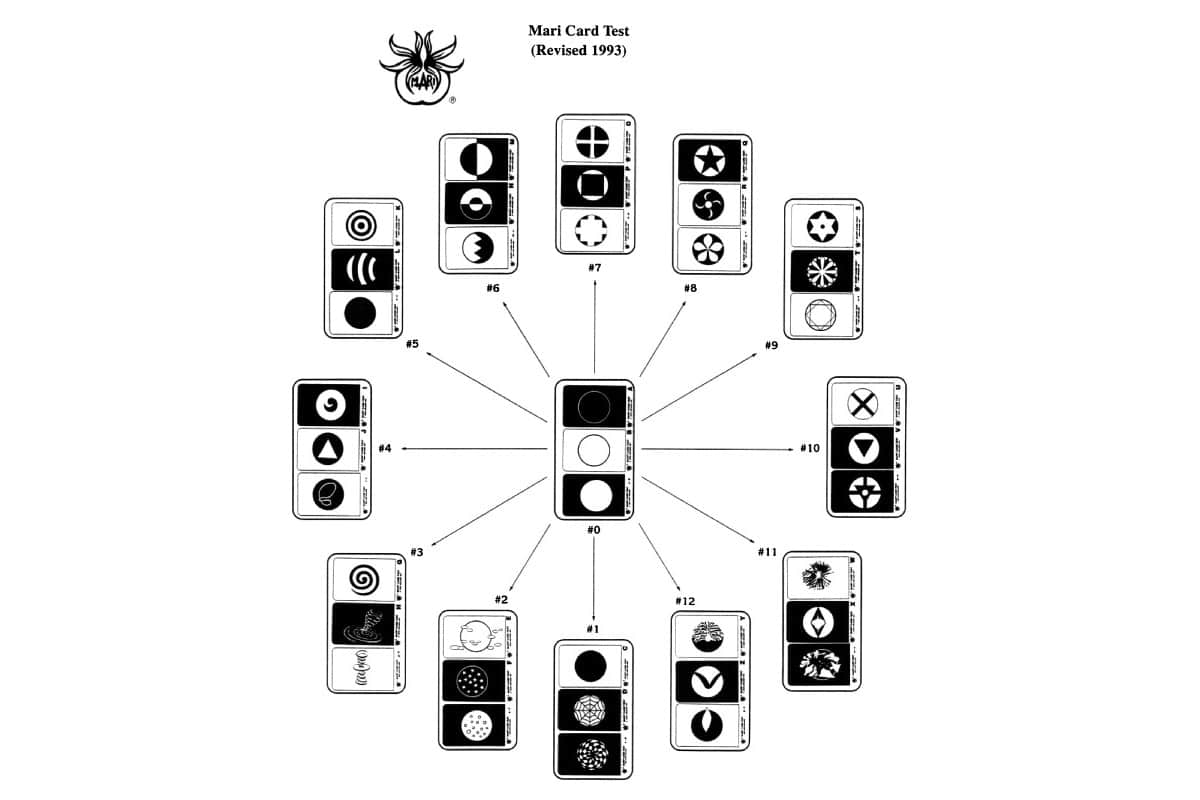The MARI Card Test, developed by the Mandala Assessment Research Institute, is a unique psychological tool designed to offer insight into a person’s personality, emotional state, and psychological well-being. The test is based on the use of symbolic imagery, focusing on mandalas — circular patterns that represent the self and are often used in various cultural traditions to signify wholeness. The test is a powerful tool for self-reflection and personal growth, providing a deeper understanding of an individual’s inner world through their responses to the mandala images presented.
Origins and Background
The MARI Card Test was developed by Dr. Susanne M. C. Reich, a German psychologist and art therapist. Drawing from the idea that the mandala is a universal symbol for the psyche, Reich designed the test to help individuals explore their unconscious mind. The Mandala Assessment Research Institute, founded to further the research and application of the MARI Card Test, aims to provide psychological and therapeutic professionals with a comprehensive tool for diagnosis and self-discovery.
The core concept behind the MARI Card Test lies in the mandala’s representation of balance, harmony, and unity. In Jungian psychology, mandalas are believed to symbolize the integration of the conscious and unconscious mind. When individuals are asked to choose and interpret a mandala image, they are essentially projecting aspects of their inner self, which can reveal hidden emotions, desires, and conflicts.
How the MARI Card Test Works
The test consists of 81 cards featuring mandala images that are structured into various colors, shapes, and forms. These cards are divided into nine categories, each representing a different aspect of the individual’s psyche. The categories include emotions, self-concept, interpersonal relationships, and others. The test-taker is asked to select cards that resonate with them at a particular moment in time.
Through a structured process, individuals are then invited to analyze their chosen images, interpreting what they see and how they feel about them. This process helps to unlock unconscious thoughts and feelings, offering a window into the person’s mental and emotional landscape. The MARI Card Test does not require artistic skill; instead, it’s the subjective interpretation and emotional response that reveal meaningful insights.

Benefits and Applications
The MARI Card Test is versatile and can be used in various settings, such as psychotherapy, counseling, and personal development. One of the test’s key benefits is its ability to tap into the unconscious mind, allowing individuals to access parts of themselves that may not be readily accessible through traditional verbal therapy alone.
For therapists, the MARI Card Test offers a valuable diagnostic tool. It can help in assessing the emotional state of clients, detecting psychological imbalances, and identifying areas in need of attention or healing. Additionally, the test is often used to enhance self-awareness, as it encourages individuals to engage with their emotional and psychological states in a non-threatening and creative manner.
Furthermore, the MARI Card Test is known for its therapeutic qualities. By providing a non-verbal form of expression, the test allows clients to communicate complex feelings or difficult experiences without the constraints of language. This can be particularly beneficial for individuals who struggle to articulate their emotions or who may have experienced trauma.
In sum, the MARI Card Test is a unique and valuable tool for exploring the psyche, offering deep insights into a person’s inner world through the use of mandala imagery. It is particularly effective for individuals seeking personal growth or for therapists looking to assess and understand their clients more holistically. By incorporating this creative and reflective tool into therapy or self-exploration, individuals can gain a deeper understanding of their emotions, thoughts, and unconscious desires, ultimately aiding in their journey toward balance and wholeness.
I studied and became certified to use the MARI card test in 1994.
Be Illuminated…
Your Muse~
Kristy



